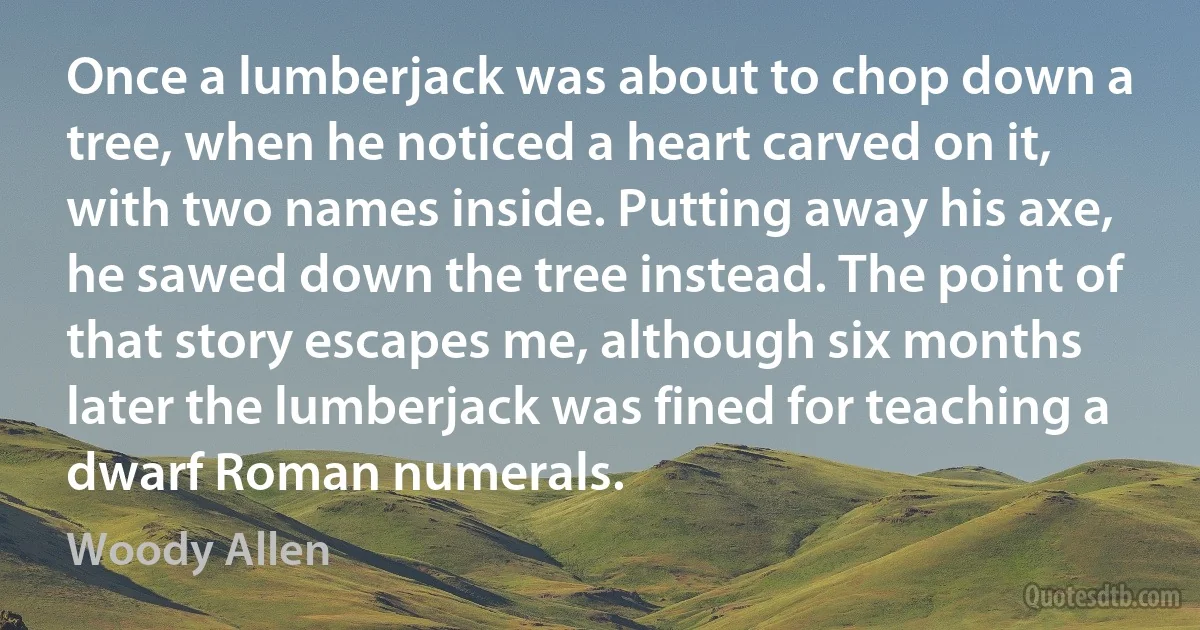Putting Quotes - page 68
Similarly calculating from the available figures for the three countries, the Hindu percentage had come down to 65.15% in 1991. To evaluate the trend of the Hindu percentage, we must take into account that the pre-Independence census always had a tentative category "tribal" or "animist", variously defined and therefore making odd quantitative jumps (but always between 2.26% and 3.26%), from 2.57% in 1881 to 2.26% in 1941. After Independence, this category was included in the Hindu category. So, putting everything on the post-Independence denominator, we include the "animists" in the Hindu percentage to get a total Hindu percentage of 77.35% for 1881, 71.72% for 1941, and 65.15% for 1991. Here again, we see a long-term acceleration of the observed trend: a decrease of 5.63% in the sixty years between 1881 and 1941, and a larger decrease of 6.57% in the shorter period of fifty years between 1941 and 1991.

Koenraad Elst
Former president Jimmy Carter recently made a profound and damning statement - the United States is the "most warlike nation in the history of the world.” Carter contrasted the United States with China, saying that China is building high-speed trains for its people while the United States is putting all of its resources into mass destruction. Where are high-speed trains in the United States, Carter appropriately wondered.

Oliver Stone
I will venture to say, that if all the other crimes which the human race has committed, from the creation down to the present day, were added together in one vast aggregate, they would scarcely equal, I am sure they could not exceed, the amount of guilt which has been incurred by mankind, in connexion with this diabolical Slave Trade. And is it not, then, the duty of every government, and of every nation on whom Providence has bestowed the means of putting an end to this crime, to employ those means to the greatest possible extent? And if there is any government and any nation upon whom that duty is more especially incumbent, is not that government the government of England, and are we not that nation? Political influence and naval power are the two great instruments by which the Slave Trade may be abolished; our political influence, if properly exerted, is great, our naval power is pre-eminent.

Henry Temple, 3rd Viscount Palmerston
Clinton's actions have been reckless and have directly led to the loss of American lives. And her extreme immigration policies, as also laid out by American victims in Cleveland, will cause the preventable deaths of countless more -- while putting all residents, from all places, at greater risk of terrorism. As Bernie Sanders said on numerous occasions, Hillary Clinton suffers from "bad judgement." She is not qualified to serve as Commander in Chief.

Donald Trump
Based on their interviews, I felt it was time to speak up about Dr. Fauci and Dr. Birx, two self-promoters trying to reinvent history to cover for their bad instincts and faulty recommendations, which I fortunately almost always overturned. They had bad policy decisions that would have left our country open to China and others, closed to reopening our economy, and years away from an approved vaccine - putting millions of lives at risk.

Donald Trump
It has definitely influenced my writing. I put appropriate Bengali words in among the English ones because I want that weaving of languages. Concepts from Bengali are sometimes difficult to translate but I want them to have a role. It's complicated. How do you bring them in without putting little explanatory notes? How do you write so you are at once inviting everyone into your book but also creating a special texture that people of your language background would especially appreciate?

Chitra Banerjee Divakaruni
You think,' he persisted, 'that my life is shameful because my encounters are. And they are. But you should ask yourself why they are.'
'Why are they - shameful?' I asked him.
'Because there is no affection in them, and no joy. It's like putting an electric plug in a dead socket. Touch, but no contact. All touch, but no contact and no light.

James Baldwin
Putting aside personal compliments what are the facts? A saving of 7 per thousand in the death-rate-2,800 lives per annum in the town. And as 5 people are ill for everyone who dies there must be a diminution of 14,000 cases of sickness, with all the loss of money, pain and grief they involve. Unless I can secure for the nation results similar to these which have followed the adoption of my policy in Birmingham it will have been a sorry exchange to give up the Town Council for the Cabinet.

Joseph Chamberlain
There are readers-and I am one of them-whose reading is rather like a series of intoxications. We fall in love with a book; it is our book, we feel, for life; we shall not need another. We cram-throat our friends with it in the cruellest fashion; make it a Gospel, which we preach in a spirit of propaganda and indignation, putting a woe on the world for a neglect of which last week we were equally guilty.

Logan Pearsall Smith
My best friends are rappers my boyfriends have been rappers. My dearest friends have been from all over the place, so before you make comments again about a WOC/POC issue, I'm not the one storming the capital, I'm literally changing the world by putting my life and thoughts and love out there on the table 24 seven. Respect it.

Lana Del Rey
Immediately you would like to know where this number for a coupling comes from: is it related to pi, or perhaps to the base of natural logarithms? Nobody knows. It's one of the greatest damn mysteries of physics: a magic number that comes to us with no understanding by man. You might say the "hand of God" wrote that number, and "we don't know how He pushed His pencil." We know what kind of a dance to do experimentally to measure this number very accurately, but we don't know what kind of dance to do on the computer to make this number come out - without putting it in secretly!

Richard Feynman
I don't care what the science fiction trade technicians say, either. They are furious that I get away with murder. I use a scientific idea as a platform to leap into the air and never come back. This keeps them angry at me. They still begrudge my putting an atmosphere on Mars in The Martian Chronicles more than 40 years ago.

Ray Bradbury
You and I in America are faced not with a segregationist conspiracy, we're faced with a government conspiracy. Everyone who's filibustering is a senator-that's the government. Everyone who's finagling in Washington, D.C., is a congressman-that's the government. You don't have anybody putting blocks in your path but people who are a part of the government. The same government that you go abroad to fight for and die for is the government that is in a conspiracy to deprive you of your voting rights, deprive you of your economic opportunities, deprive you of decent housing, deprive you of decent education. You don't need to go to the employer alone, it is the government itself, the government of America, that is responsible for the oppression and exploitation and degradation of black people in this country. And you should drop it in their lap. This government has failed the Negro. This so-called democracy has failed the Negro. And all these white liberals have definitely failed the Negro.

Malcolm X
There is no doubt about Martin Luther's marriage, but the rumour about his wife's early confinement is false; she is said however to be pregnant now. If there is truth in the popular legend, that Antichrist will be born from a monk and a nun (which is the story these people keep putting about), how many thousands of Antichrists the world must have already!

Desiderius Erasmus
The truth is, revolution is anti-democratic. Revolutions in their beginnings are always opposed by the majority, which is nothing but a virtual herd controlled by the media. A minority of one knows its own interests better than the rest of society, and the rest of society can only be convinced of a truth if people start putting it into action rather than waiting for validation from the majority. The struggle for a world free of domination is the insistence that we are the only ones who can define and meet our needs, and that our needs are more important than the ever-manipulated bylaws, due process, and sacred pieces of paper that democracy holds so dear. The principle of direct action is fundamentally at odds with following the rules and getting permission.

Peter Gelderloos
I settled everything with Mrs. Grey, while you were putting on your bonnet," replied he. "She said I might have her consent, if I could obtain yours; and I asked her, in case I should be so happy, to come and live with us - for I was sure you would like it better. But she refused, saying she could now afford to employ an assistant, and would continue the school till she could purchase an annuity sufficient to maintain her in comfortable lodgings; and, meantime, she would spend her vacations alternately with us and your sister, and should be quite contented if you were happy. And so now I have overruled your objections on her account. Have you any other?"
"No - none."
"You love me then?" said he, fervently pressing my hand.
"Yes.

Anne Brontë



